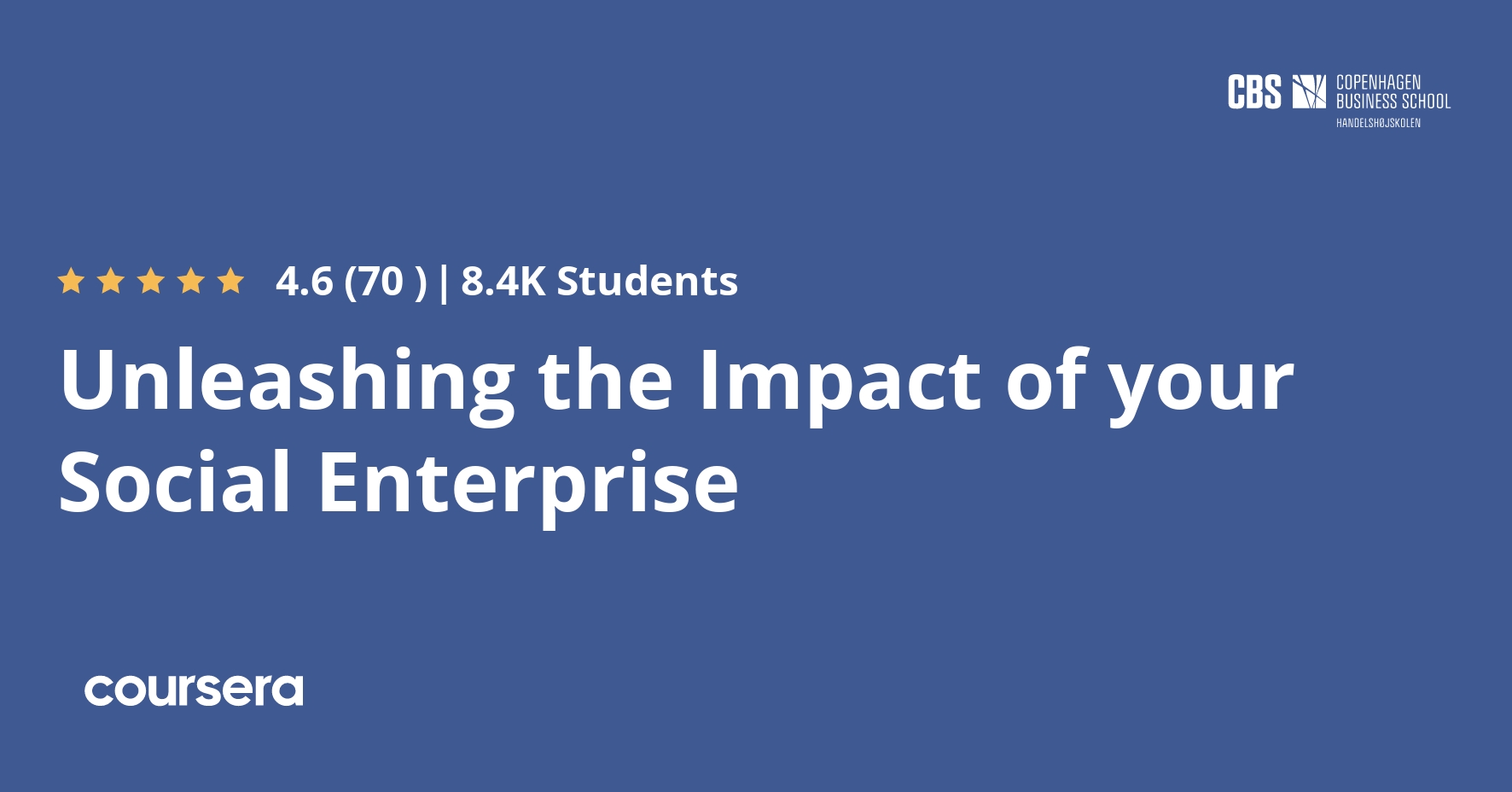Description
In Course 3 of this Specialization you will first of all learn about Social Impact Assessment. Hence you will be able to develop a method to evaluate the social mission that you achieve while implementing your business plan. Next you will outline an appropriate communication strategy for your social enterprise and will demonstrate how to market your products and services to beneficiaries and other customers. Here you will employ an adaptable communication strategy as you move from early adopters to a broader market share.
Furthermore you will determine growth strategies and how you can scale or replicate your business plan internationally in order to reach a larger number of beneficiaries. In particular you will discuss organic growth, social franchising, and an open source approach. Finally, you will evaluate exit strategies. Thus you will review options social enterprises have when they need to finance their growth but the original funders can not or do not want to finance the expansion.
Course 3 will be completed by your Capstone project, which will ask you to submit the final business plan of your social venture.
Note: It is highly recommended to have completed Course 1 & 2 of the Social Entrepreneurship Specialization before starting this Course!
What you will learn
Introduction to Social Impact Assessment
Welcome to the final Course of this Social Entrepreneurship Specialization. In this session you will be introduced to the topic of measuring the social impact of a venture. You are asked to apply your knowledge to the case of Specialisterne and frame your business plan by writing the executive summary.
Measuring Social Impact
Welcome to Module 2. In this week we will delve deeper into social impact assessment. We encourage you to explore your possibilities as you grow and try to find indicators for your activities. It is crucial to understand and document how societal value is created. Most startups do not yet have any actual impact that can be measured, therefore, it is important to spell out your “theory of change” as clearly as possible and to back it up with data if possible. Relevant data would substantially strengthen your position in terms of investors, stakeholders as well as your communication and marketing strategy.
How Social Enterprises Communicate
Welcome to Module 3! In this week we will talk about how social enterprises communicate about their products and their impact. The case about CaféDirect will be presented and you will be encouraged to think about your own communication strategy. Finally we will kick-off the topic about growth and replication.
Growth and Replication of Social Enterprises
Welcome! In week 4 we will talk about how social enterprises can replicate their social innovations. We will focus on the case of Specialisterne, which demonstrates that also mixed approaches can be valuable and we will also listen to best-practice examples of India and the U.S. Finally you will be asked to give advice about the the Mobility CarSharing case.





